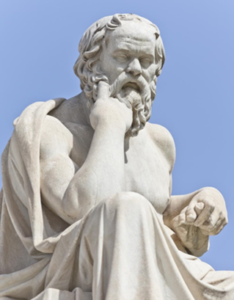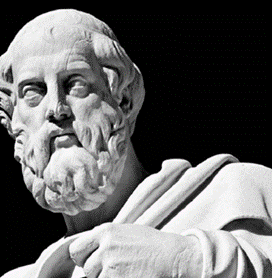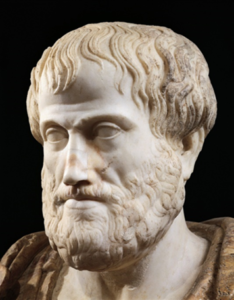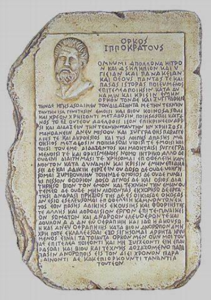Editorial
Dimitrios Filippou
Ass. Professor, Medical School, National and Kapodestrian University of Athens
The idea of the soul holds a vital role in ancient Greek philosophy, being a focus of inquiry for notable philosophers like Socrates, Plato, and Aristotle. The exploration of the soul encompassed not only human nature and existential questions but also ethical considerations and humanism, particularly in medical practices. In examining the soul’s connection to ethics and humanism within the medical context, three primary phases emerge within ancient Greek thought: the Pythagorean and Pre-Socratic views, the philosophical insights of Socrates and Plato, and Aristotle’s perspective.
The soul in Pre-Socratic and Pythagorean thought
The first systematic approach to the soul arises from Pre-Socratic and Pythagorean thought, which attempted to explain the nature of life and the universe through abstract concepts and philosophical principles.
The Pythagorean view of the soul: Pythagoras (6th century BC), renowned chiefly for his mathematical insights, also made notable contributions to philosophical discussions regarding the soul. In Pythagorean philosophy, the soul is viewed not merely as an immaterial presence within the body but as having an eternal and divine essence. Pythagoras endorsed the concept of reincarnation, suggesting that the soul survives the physical body and moves into a new form after death. This perspective on the soul as immortal strengthened the belief that it is a core aspect of human identity, connecting individual existence to a broader cosmic law and moral framework. (Figure 1).
The Presocratic approach to the soul: Presocratic thinkers like Heraclitus and Anaximander advanced naturalistic and cosmological perspectives regarding the soul.
Figure 1. Pythagoras (Ancient Greek: Πυθαγόρας; c. 570 – c. 495 BC) was a philosopher and mathematician from ancient Greece, renowned primarily for his work in mathematics, particularly the Pythagorean Theorem, which connects the side lengths of a right triangle. He established the Pythagorean School and profoundly impacted philosophy, mathematics, and the understanding of numerical relationships found in nature. |
Heraclitus posited that the soul represented cosmic order and constant transformation. He viewed the soul as intrinsically linked to fire, one of the essential elements of the universe, and as a participant in the harmony of the cosmos. This perspective indicated that the soul occupied an integral position in the universe rather than merely being an isolated fragment of human life. In a similar vein, Anaximander articulated a more abstract understanding of the soul as part of the “infinite” principle, or the indefinite essence that serves as the origin of all existence. This viewpoint implied a deeper connection between humanity and the cosmos, reinforcing the concept of the interrelationship between soul and body.
The Socratic and Platonic view of the soul
The most important turning point in the philosophical approach to the soul comes with Socrates and his student Plato, who connected the soul with ethics, knowledge and truth, creating an ethical framework that had a great impact on human behavior and the practice of medicine.
Socrates and the soul as the center of ethics: Socrates (469–399 BC) is regarded as one of the earliest philosophers to examine the soul as fundamental to human existence and ethics. His Socratic method, centered on dialectical dialogue, sought to promote self-understanding, viewing the soul as the foundation of virtue and morality. For Socrates, the soul enables individuals to navigate between right and wrong, making the care of the soul humanity’s utmost responsibility. He famously stated, “Virtue is knowledge,” asserting that true wisdom originates from the soul. In light of this, the practice of medicine takes on a profoundly humanitarian dimension, emphasizing that bodily treatment must go hand in hand with soul care. Socrates believed that a fulfilling life relies on the harmony between body and soul, suggesting that genuine health is unattainable without moral equilibrium. (Figure 2)
Figure 2. Socrates (born c. 470 bce, Athens [Greece]—died 399 bce, Athens) was an ancient Greek thinker regarded as a key figure in the development of Western political philosophy and ethical thought. His most notable contribution is the Socratic method, a form of inquiry that promotes critical thinking and self-examination. Socrates left no written records of his own teachings, and much of what we understand about him is derived from his disciples, such as Plato and Xenophon |
Plato and the immortality of the soul: Plato (427–347 BC), building on Socratic ideas, developed a comprehensive philosophical framework regarding the soul, connecting its immortality to ethics and the quest for truth. In the Phaedo dialogue, Plato depicts the soul as eternal and autonomous, separate from the body. He argues that the soul exists prior to physical form and persists after death. The Platonic conception of the soul is divided into three parts: the rational (which seeks truth), the thymic (associated with courage and emotions), and the volitional (relating to basic desires and necessities). This tripartite structure directly influences morality: a well-ordered soul is one that achieves harmony among these components. In Platonic thought, nurturing the soul and cultivating moral virtues extend beyond simple physical health. This holds significant consequences for healthcare, emphasizing that medical practice should extend beyond merely addressing physical ailments to also consider the individual’s spiritual well-being. In the Gorgias dialogue, Plato posits that the most serious affliction is that of the soul, where the genuine remedy lies in ethical enhancement and aligning the soul with virtue. (Figure 3)
Figure 3. Plato born Aristocles (Ἀριστοκλῆς; c. 427 – 348 BC) was a classical Greek thinker, a disciple of Socrates and mentor to Aristotle. He established the Academy in Athens, which is recognized as one of the first centers for higher education in the Western civilization. His philosophical contributions, mainly composed as dialogues, delve into diverse areas like ethics, politics, and metaphysics, with significant texts such as “The Republic,” “Phaedrus,” and “The Symposium.” His philosophy highlights the realm of forms or ideals and underscores the significance of rational inquiry. |
Aristotle and the soul as a form of the body
Aristotle (384–322 BC) provided a distinct yet equally significant perspective on the soul, blending aspects of physiology with metaphysics. He regarded the soul as the body’s form, the essence that imparts life and purpose to a living organism. In contrast to Plato, Aristotle viewed the soul as inseparable from the body, conceptualizing both as an interconnected entity that relies on one another for existence and functionality. (Figure 4)
Figure 4. Aristotle was a philosopher and polymath from ancient Greece, living between 384 and 322 BC. He contributed greatly to numerous disciplines, such as logic, metaphysics, ethics, politics, aesthetics, and the natural sciences. He is considered one of the most pivotal figures in Western philosophy, influencing how various subjects are taught and perceived even in contemporary times. |
The functional approach of the soul: In his treatise On the Soul, Aristotle explores the concept of the soul as the “enteleche” of the body, meaning it is the essence and guiding force that defines what the body is capable of becoming and achieving. The soul dictates the characteristics and activities of different living beings: for instance, the human soul encompasses the faculties of intellect and reasoning, whereas a plant’s soul is limited to nourishment and growth. Aristotle’s functional perspective on the soul has direct implications for medicine. He posits that health is achieved when the soul and body operate in harmony, fulfilling their inherent roles. Illness and dysfunction arise when this equilibrium is disturbed. Consequently, medical practice is not merely about restoring physical capabilities but also about reinstating the balance between the soul and body.
The ethics of medicine and the care of the soul: In Aristotelian philosophy, ethics is fundamentally associated with the idea of ‘happiness’, a state of contentment and fulfillment achieved through virtuous actions. The soul, regarded as the wellspring of rational and moral virtues, requires appropriate nurturing and attention. Within this framework, medical practice transcends mere technical skill and transforms into a moral obligation focused on the holistic welfare of the patient. Aristotle’s view of the soul presents a human-centered approach to medicine, where the doctor’s role extends beyond physical healing to fostering the moral and psychological well-being of the patient. According to Aristotle, nurturing the soul is essential for attaining genuine health.
The soul and ethics in medical practice
The philosophical understanding of the soul in ancient Greek thought greatly influenced the ethics surrounding medical practices. In the ideas of Socrates, Plato, and Aristotle, health extends beyond merely avoiding illness; it encompasses the overall balance of both body and soul. Consequently, treatment is viewed as a comprehensive method that links the individual’s physical and spiritual well-being.
Medicine as a moral act: From a philosophical perspective on the soul, medicine transcends being a purely technical endeavor. The relationship between doctor and patient embodies ethical significance at its highest level, as the physician’s duty extends beyond just implementing medical expertise; it also encompasses nurturing the patient’s soul. A doctor should assist the patient in regaining not only their physical well-being but also their mental equilibrium and moral integrity.
The Hippocratic Oath: The Hippocratic Oath serves as the cornerstone of medical ethics, embodying these philosophical ideals. In this oath, the physician commits to honoring the patient’s life and dignity, striving for what is good while shunning harm. Ancient Greek medical ethics is rooted in the philosophical idea of the soul as the source of human virtue and dignity. (Figure 5)
Figure 5. The Hippocratic Oath is a collection of ethical standards traditionally swore by doctors to uphold key principles in medical practice, focusing on patient care and preserving professional integrity. It traces its roots to Hippocrates, a Greek doctor often considered the “Father of Medicine.” The oath highlights the pledge to avoid harm (primum non nocere), safeguard patient confidentiality, and adhere to ethical medical practices. |
The philosophical concept of the soul in ancient Greek thought played a crucial role in shaping humanism and medical ethics. Considered the essence of human life, the nurturing of the soul became a fundamental moral duty in philosophy and healthcare. Influenced by the teachings of Socrates, Plato, and Aristotle, the soul was intrinsically tied to moral excellence, with medical practice regarded as a noble endeavour focused on the holistic welfare of individuals.
This article is dedicated to the sacred memory of my father Κonstantinos D. Filippou, Prof. of Education and Philosophy.





